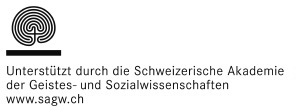Digital Motherhood
Self-Tracking Apps for Breastfeeding Mothers—A Study on Usage and Effects on Maternal Well-Being
DOI:
https://doi.org/10.47368/ejhc.2022.304Keywords:
self-tracking, breastfeeding, maternal well-being, digital motherhood, mHealthAbstract
Smartphone apps for self-tracking breastfeeding emerged as a popular tool among new mothers. Yet, we know little about how mothers use these apps and, most importantly, how self-tracking breastfeeding relates to maternal well-being. After surveying a sample of German mothers engaging with breastfeeding trackers (n = 234; recruited via an online access panel), we identified three types of self-tracking usage: (1) straightforward basic trackers, (2) meticulous data collectors, and (3) advisory-oriented self-trackers. These usage types differ regarding the data they register, the algorithmic feedback they retrieve, and their conversational levels about parameters tracked. Our findings suggest that overall maternal well-being – in terms of confidence, stress, and self-worth – remains largely unaffected by different self-tracking usage. However, when considering only the mothers’ confidence concerning breastfeeding, breastfeeding self-efficacy is lower among those most engaged in tracking and higher among those least engaged with it. Implications of these findings are discussed in terms of whether breastfeeding trackers enhance or undermine mothers’ confidence in their breastfeeding abilities relative to the intensity of their self-tracking use. Thus, future research may include longitudinal designs to validate these findings and derive effective app-supported smartphone interventions for breastfeeding mothers.
Downloads
Published
How to Cite
Issue
Section
License
Copyright (c) 2022 Nariman Sawalha, Veronika Karnowski

This work is licensed under a Creative Commons Attribution 4.0 International License.
The authors agree to the following license and copyright agreement:
a. Authors retain copyright in their work.
b. Authors grant the European Journal of Health Communication the right of first publication online on the internet (on the publication platform HOPE of the Main Library of the University of Zurich).
c. The electronic contributions on the internet are distributed under the „Creative Commons Attribution 4.0 International“- License (CC BY 4.0). This license allows others to copy and redistribute the work in any medium or format, to remix, transform and build upon the material with an acknowledgement of the work's authorship and initial publication in the European Journal of Health Communication . These conditions are irrevocable. The full text of the license may be read under http://creativecommons.org/licenses/by/4.0/.
d. Authors are able to enter into separate, additional contractual arrangements for the non-exclusive distribution of their work, as long as the conditions of the CC BY 4.0 License are fulfilled and initial publication in the European Journal of Health Communication is acknowledged.
e. Authors grant the Editors commercial rights, using a publishing house, to produce hardcopy volumes of the journal for sale to libraries and individuals, as well as to integrate the manuscript, its title, and its abstract in databases, abstracting and indexing services, and other similar information services.
f. This agreement is subject to possible legal disclosure obligations.
g. This agreement is governed by Swiss law. Court of jurisdiction is Zürich.









